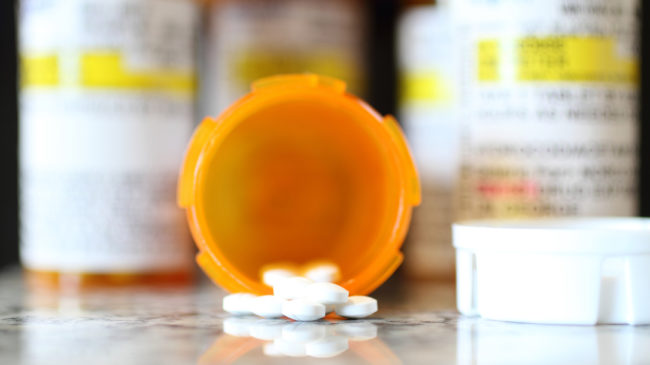As COVID-19 puts unprecedented stress on America’s health care system, Republican senators are pushing bipartisan legislation to reduce the financial burden of prescription drugs. But the GOP’s best effort to oppose popular support for socialized medicine, Sen. Chuck Grassley’s prescription drug reform bill, embodies Democratic proposals that Republicans often deride as socialist. Despite saying that “America will never be a socialist country” at the State of the Union, President Trump remarked in the same speech that he is ready to sign the bill.
Grassley is hoping to legislate lower prices for Medicare patients seeking future coronavirus medications. Earlier, Grassley denied accusations of socialism, claiming that the Cato Institute praised the bill’s savings for taxpayers. “Does anyone really think that a libertarian organization would endorse price controls?” he asked.
Of course it would. A libertarian organization should support price controls for government programs, as it would be quite un-libertarian to allow private companies to extract as much money as they can from taxpayers. But the bill goes much further than merely taming government spending.
It introduces broad authority to the secretary of Health and Human Services to set market pharmaceutical prices by defining price increases and debuts that require public “justification” based on arbitrary criteria. If the health secretary were to find the companies’ explanations inadequate, he or she could fine them daily until they lowered their prices.
Republicans constantly decry interventions resembling socialism, pointing to doctor shortages that leave Canada and the United Kingdom with lower cancer survival rates than the U.S., but increasing government control is also nothing new for Republicans like Sen. Grassley, who will apply for Trump’s second federal bailout to pay $12 billion to the Iowa farmers he represents — and his own farm. Grassley’s family has actually collected over $1.6 million from the federal government from 1995-2017. And during the George W. Bush Administration, Grassley even lobbied for an ethanol requirement in gasoline for what Republicans uncharacteristically justified as environmentalism. But the production of ethanol actually adds to the total carbon footprint of automobiles, so it was really just a way to raise the price of corn and payout rich, politically-connected farmers like Grassley.
Republican socialism isn’t the way to reduce drug prices. It’s the government’s fault that drug prices are so high in the first place. The only sustainable solution is to liberalize health care from government control.
Consider a Vice News report that found that Novolog insulin pens were $17 in Mexico, but $540 in America. Why can’t Americans just buy the exact same FDA-approved drugs from foreign pharmacies online? Probably because it’s illegal. After all, pharma heavily lobbied for foreign import bans — bans that are popular in socialist regimes.
Some conservatives deride drug reimportation as “importing socialism,” arguing that permitting Americans access to the price controls negotiated by other countries would destroy profit-motivated pharmaceutical innovation. But even if it’s coming from socialist countries, competition is the best free-market solution to compel pharma to improve development and reduce its American prices. It’s odd that Democrats have actually come to support these free-trade principles while some voices at free-market groups like Cato and the Taxpayers Protection Alliance have endorsed the trade restrictions.
Even so, drug reimportation wouldn’t be the sole solution to high drug prices, for which Medicare and Medicaid are largely to blame. As it stands, these federal programs incentivize pharma to keep prescription drug prices artificially high for everyone, because Medicare and Medicaid will only buy prescriptions based on the average and lowest private prices, respectively.
Sen. Grassley’s bill also entrenches pharma’s terrible reimbursement schemes. Yes, the bill should bring some savings to taxpayers. It’ll force pharmaceutical companies to report discounts they give consumers, which they don’t as a way to keep their reported prices high. But reimbursements would still be tied to private market prescriptions, and basic economics tells us that pharma will just increase prices for everyone with private insurance to preserve high reimbursement rates. If we agree that the government should provide health care to the elderly and the poor, the only way to reduce drug prices without impeding innovation is to copy countries like Switzerland, replacing Medicare and Medicaid with individual subsidies to purchase private insurance.
It’s a shame that Republicans only oppose socialism until they’re in power. With the COVID-19 bailouts, Sen. Bernie Sanders is largely correct that Congress supports socialism for corporations and the rich. Corruption has plagued both of America’s major political parties for decades, and unprecedented health care spending will persist until policymakers liberalize the pharmaceutical market from government control.
A version of this column first appeared in the Daily Caller.

